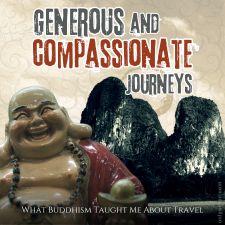Part Eight of the What Buddhism Taught Me About Travel series
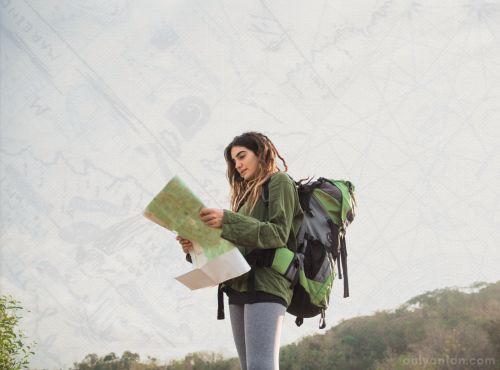
Introduction
Sometimes, the smallest gestures leave the deepest mark: a stranger offering directions when you’re lost, a shared meal when words fall short, or a helping hand at the end of a long day on the road. Every traveller, sooner or later, encounters moments of unexpected kindness—those fleeting but powerful reminders that generosity exists everywhere. These seemingly ordinary exchanges can transform a trip from routine to remarkable. In a world often focused on efficiency and self-interest, generous and compassionate journeys stand out as deeply human ones.
This post—Part Eight of the What Buddhism Taught Me About Travel series—explores how the Buddhist virtues of karuṇā (compassion) and mettā (loving-kindness) can shape not only how we travel, but who we become through our travels. Practicing generosity doesn’t require grand acts or material wealth. It asks only that we remain open, attentive, and willing to connect—traits that Buddhism regards both as virtues and as living practices.
Whether it’s offering time to a local initiative, choosing sustainable accommodations, engaging with strangers mindfully, or simply approaching cultural differences with empathy, travel presents a multitude of opportunities to embody compassion. In this post, we’ll explore how generosity can take many forms—through kindness, sustainability, service, cross-cultural understanding, and ethical decision-making—and how these actions deepen the impact of our journeys, both for ourselves and for the communities we encounter.
When we travel with an open heart, the world opens in return.
Understanding Compassionate Travel
What does it mean to travel generously and compassionately? Many might associate generosity with money—donations, tips, or giving away belongings. But from a Buddhist perspective, generosity is far richer and more nuanced. It includes time, attention, energy, and goodwill. It’s not just about what you give, but how you give—and why.
Defining Generosity and Compassion
Generosity (dāna) in Buddhist ethics is not merely an action but a practice—a habit of open-heartedness that transcends transactional thinking. It includes everything from offering a helping hand to listening with full presence. Compassion (karuṇā) is the active wish to relieve suffering, grounded in empathy and connection. Together, these approaches create a foundation for engaged, ethical travel.
Mettā, or loving-kindness, deepens this foundation. Unlike compassion, which arises in response to suffering, mettā is a proactive cultivation of goodwill toward all beings, regardless of whether they are suffering or not. A traveller who carries mettā is more likely to approach people and places with gentleness, patience, and warmth.
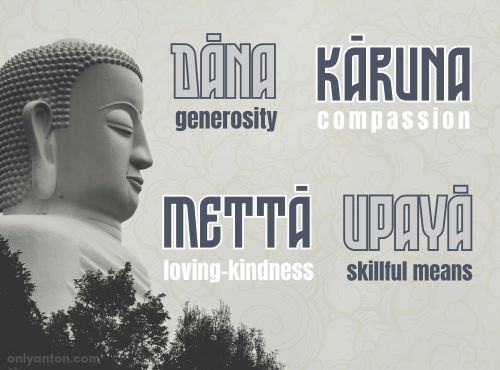
Balancing Kindness with Wisdom and Discernment
Generosity and compassion are essential, but Buddhism emphasizes balance. Prajñā, or wisdom, helps ensure that our actions do not cause harm, even unintentionally. This wisdom is closely tied to upāya, or “skillful means,” which refers to acting with discernment—choosing responses that are appropriate to each unique situation.
For travellers, this might mean giving money in one setting, offering time or presence in another, or simply stepping back when one’s involvement would do more harm than good. Skillful generosity is context-sensitive, humble, and wise.
The Ethics of Giving: Perfect vs. Imperfect Obligations
Western ethical philosophy can also help clarify the nature of generosity and compassion. A perfect obligation is something one is morally required to do, such as keeping a promise or avoiding harm. These duties are binding on everyone, always.
By contrast, imperfect obligations—like charity or kindness—are morally commendable but not universally required in every situation. They leave room for personal discretion: when, how, and to what extent one chooses to give. This distinction makes generosity not a moral burden, but a choice that gains meaning from its freedom.
The idea of supererogation—acts that go beyond duty—also fits here. While some ethical systems (e.g., certain utilitarian frameworks) suggest we’re obligated to maximize our impact at all times, Buddhism allows for a gentler approach. Generosity is a practice, not a demand. Acts of kindness are not less meaningful because they are not required. They are often more meaningful because we choose them freely.
Generosity in Travel
As a traveller, this perspective is liberating. You are not ethically required to solve every problem or give every spare coin. However, you are invited to engage generously with your time, attention, respect, and presence. By doing so, you embody karuṇā, mettā, and upāya—not out of guilt, but out of connection.
While teaching in China, my students sometimes cautioned me about giving money to street beggars. They had seen me do so and, with genuine concern, warned me about potential scams. “Some of them are pretending,” they would say, “trying to take advantage of foreigners.” I didn’t dismiss their concerns. I agreed—it was entirely possible. But that wasn’t the point.
“Yes,” I would reply, “perhaps some are not what they seem. But what if they are? What if the need is real?” A few coins meant very little to me. Yet that gesture could mean a great deal for someone in difficult circumstances. More importantly, I explained, I gave because of the kind of person I wanted to be. I wanted to cultivate generosity, not just as a practice, but as part of my character. I wasn’t seeking to be naive, but I also didn’t want fear or cynicism to decide who I was.

The Takeaway
This attitude wasn’t about being morally superior or endlessly self-sacrificing. Instead, it was about recognizing that generosity, like travel itself, is not always safe, tidy, or calculable. It is rooted in intention and awareness, not in guarantees. To give mindfully, even when the outcome is uncertain, is to choose presence over suspicion, connection over calculation.
That kind of generosity—freely chosen, rooted in awareness—requires balance. Buddhist teachings remind us that compassion must be paired with wisdom (prajñā) and expressed through upāya, or skillful means. This balance means acting not from guilt or reflex, but with discernment: understanding when to give, how to give, and when stepping back is the more compassionate choice. Just as one cannot pour from an empty cup, travellers, too, must care for their own well-being. Generosity is not about depletion—it is about sustainability. By tending to our own energy, presence, and boundaries, we ensure that what we offer to others is given with clarity and genuine intention, not out of obligation or exhaustion.
Everyday Acts of Kindness in Compassionate Travel
Travel often immerses us in unfamiliar environments—new languages, customs, and rhythms of daily life. Small acts of kindness can have an outsized impact in these moments of disorientation or discovery. They remind us that, despite differences, we are connected by shared gestures of humanity.
Small Gestures, Lasting Impact
Some acts of generosity are simple: helping someone lift their luggage into an overhead bin, buying a warm meal for a fellow traveller, or offering directions to someone who looks lost. Others might involve sharing an umbrella during a sudden rainstorm, giving up your seat on a crowded bus, or offering a snack to someone in need. These moments are easy to overlook, yet their effect can ripple outward. A single act of goodwill often inspires others to pay it forward—generosity begets generosity.

An Example
One of the simplest yet most memorable examples I’ve experienced came not in a grand gesture, but in the rhythm of daily life. While living in China, I often visited a small, family-run convenience store near my apartment. The older couple who ran it spoke no English, and my Mandarin was limited, but we developed a warm, wordless rapport over time. I was just a regular customer, but they treated me like something more. Every so often, the woman would smile and offer me a little something extra—a skewer of fried rice cake, a hard-boiled egg, and once, to my surprise, a boiled goose egg nearly the size of my palm. These were simple gifts, but they came with genuine kindness and no expectation of return. These quiet exchanges of generosity transformed a routine errand into a comforting ritual that grounded me in a foreign place.
Mettā in Action: Cultivating a Giving Mindset
Practicing mettā—loving-kindness—can deepen this mindset. In traditional Buddhist meditation, one silently repeats phrases such as, “May all beings be peaceful. May all beings be happy. May all beings be well.” This meditation isn’t just wishful thinking; it conditions the mind to soften, to stay open, and to approach the world with warmth. Doing so before or during travel cultivates not only generosity toward others but also patience, empathy, and grace.

Compassionate Tourism: Supporting Local Communities Sustainably
Why Ethical Travel Matters
Every traveller leaves a footprint—not just on landscapes, but on lives. Tourism can bring vital income, preserve cultural traditions, and build bridges between people. But it can also strain local resources, inflate prices, and reduce communities to commodities. Supporting local communities with mindfulness and compassion is one way to ensure that our journeys uplift rather than exploit.
Practices That Empower, Not Exploit
Responsible travel practices begin with conscious choices. Staying in locally owned guesthouses instead of international chains helps keep money circulating within the community. Eating at family-run restaurants not only supports local livelihoods but also offers a more authentic taste of place. Buying directly from artisans, rather than from airport gift shops or mass-produced outlets, helps preserve traditional crafts and cultural identity. These small decisions accumulate. They transform passive tourism into ethical engagement.

The Positive Impact of Local Enterprises
One example comes from northern Thailand, where women-led weaving cooperatives have revitalized local economies while preserving ancestral knowledge. Travellers who purchase scarves, table runners, or handmade textiles from these cooperatives don’t just take home a souvenir—they support economic empowerment, cultural resilience, and community pride. Similarly, indigenous markets across Latin America, Africa, and Southeast Asia often serve dual purposes: they offer travellers beautiful, meaningful items and provide income to historically marginalized groups.
Compassionate journeys begin with awareness. When we choose to support local communities, we make travel more sustainable and more human—an act of solidarity, not extraction.
Volunteer Opportunities and Service Projects
The Ethics of Voluntourism
One of the most appealing ways to practice generosity while travelling is through volunteer work. Yet not all forms of volunteering are created equal. The growing popularity of voluntourism—short-term service paired with tourism—has sparked debate. While often well-intentioned, these programs can sometimes do more harm than good: fostering dependency, displacing local workers, or reducing complex social challenges to photo ops.
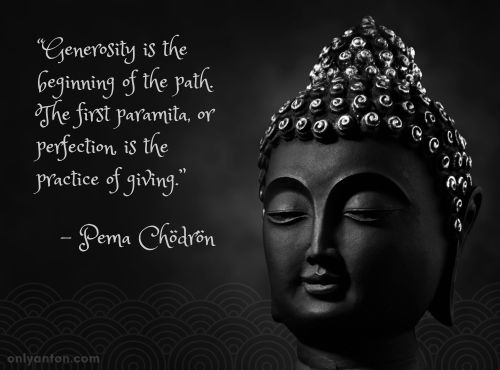
Empowering, Not Disrupting
Ethical volunteering begins with humility and respect. The goal is not to “fix” a place or people but to listen, learn, and support efforts already underway.
Meaningful service tends to be rooted in community-led initiatives—projects designed with and by locals, not just for them. Options might include:
- Language exchange programs, where travellers and locals teach one another, bridge gaps in communication and culture.
- Environmental conservation efforts include helping maintain hiking trails, planting trees, or cleaning up beaches.
- Skill-sharing workshops or community centers, where visitors assist based on actual needs expressed by the community.
When Giving Time Deepens Connection
A traveller, for example, might join a reforestation effort outside Pokhara during a month-long stay in Nepal. She hikes into the hills each morning to plant saplings alongside local farmers and students. Conversations are slow and multilingual, but rich in meaning. By the end of the stay, the traveller feels less like a guest and more like a participant in something lasting. The experience leaves a deeper imprint than any photograph could.
Ultimately, service done well deepens our understanding of the world and ourselves. It’s not about giving more; it’s about giving with awareness.
Cultural Understanding Through Compassionate Encounters
Travel with Humility and Curiosity
Travel is one of the most powerful ways to encounter differences. Yet, the value of cultural exchange isn’t in how much we see or consume—it’s in how deeply we engage. Generous and compassionate journeys ask us to meet other cultures not with judgment or superiority, but with humility and curiosity.
True exchange begins with a willingness to learn from others—not just about their history or cuisine, but about their values, their rhythms of life, their ways of seeing the world. This humility means acknowledging that our own cultural norms are not universal truths. Every destination offers new perspectives, if we’re open to them.
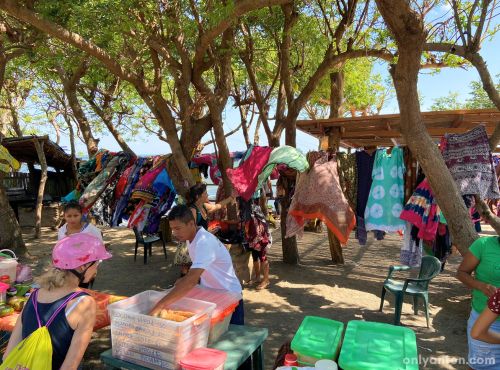
Learning from Cultural Generosity
Cultural generosity often arrives in quiet, unspoken moments. A family in Vietnam invites you to join their table for dinner, even though you don’t share a common language. A market vendor in Morocco teaches you how to greet elders respectfully. You attempt a few words in Tamil or Czech or Quechua, and eyes light up—not because your accent is perfect, but because the effort itself is a sign of respect.
These small gestures reflect a deeper ethic: compassion in cultural exchange. It means setting aside stereotypes and assumptions. It means resisting the urge to compare or evaluate, and instead, to witness and appreciate. It also means recognizing one’s own privilege—the freedom to travel, the power dynamics that shape global movement, and choosing to listen more than speak.
In Buddhist terms, this is a form of metta (loving-kindness) applied to both individuals and cultures. Travelling with open minds and hearts allows us to participate in something much greater than tourism. We help build understanding across the boundaries that often divide us.
Environmental Compassion in Travel
The Interconnection of Nature and Humanity
Compassion in travel extends beyond people—it includes the planet we all share. A generous and compassionate journey is not only about kindness toward other people but also about respect for the natural world. The Buddhist concept of pratītyasamutpāda—dependent origination—reminds us that all things are interconnected. The well-being of communities is intimately tied to the well-being of their ecosystems.
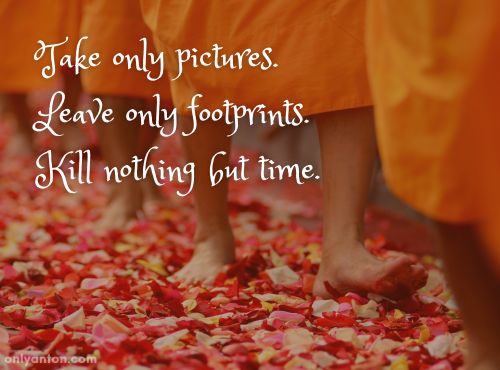
Sustainable Travel Choices
As travellers, our presence leaves a footprint. But with awareness, we can ensure that our footprints support rather than deplete. Eco-friendly travel practices are expressions of compassion in action. Actions as simple as carrying a reusable water bottle, refusing single-use plastics, or choosing ecotourism initiatives prioritize sustainability over spectacle.
Mindful travel also means avoiding activities that damage the environment, like off-trail hiking in fragile areas, or supporting businesses that pollute natural habitats. Instead, support those activities that work in harmony with local ecosystems and promote long-term ecological balance.
Supporting Eco-Conscious Initiatives
Consider a reforestation project in Costa Rica, where travellers spend part of their trip planting native trees alongside local conservationists. It’s not about rescuing the rainforest single-handedly, but joining a collective effort with humility and care. The experience leaves behind more than just photos. It fosters a connection with the land and a renewed sense of responsibility.
Environmental stewardship is not separate from generosity and compassion—it is their natural extension. To care for people, we must care for the world they inhabit.
Acts of Compassion Towards Animals
Compassionate travel means recognizing the moral weight of our interactions with all sentient beings, including animals. In the Buddhist tradition, compassion (karuṇā) is not limited to humans; it extends to all life forms. As travellers, we can either uphold this compassion or contribute, sometimes unknowingly, to harm.
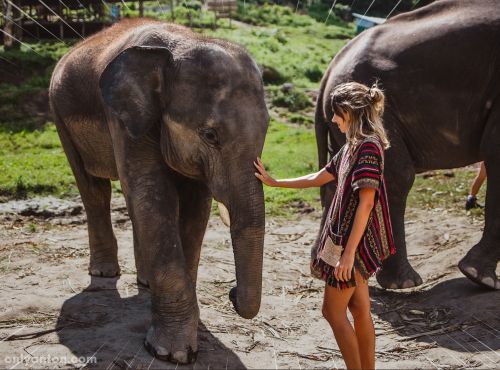
Respecting Wildlife with Responsible Choices
One of the most impactful decisions we make is how we engage with animals in tourism. Many activities that seem harmless—elephant rides, tiger selfies, animal performances—are underpinned by exploitation. Ethical travel means resisting these attractions and instead supporting wildlife sanctuaries and conservation efforts that prioritize animal welfare. One day, I hope to visit an elephant sanctuary in Northern Thailand that embodies this ethic of non-harm, where observation and education replace spectacle and subjugation.
I was also struck by the compassion of Tibetan monks during the Shoton Festival in Lhasa. I was fortunate to witness the unveiling of the great Thangka, but what moved me most was the reason behind the monks’ seasonal retreat: to avoid stepping on newly emerged insects. Their commitment to minimizing harm, even to the smallest of creatures, left a lasting impression on me.
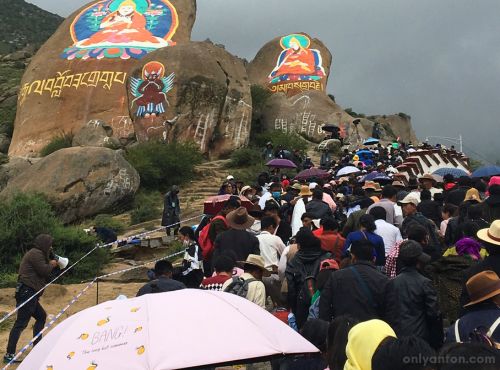
Dietary Compassion and Buddhist Principles
In Buddhist teachings, compassion toward animals includes a consideration of what we consume. Vegetarianism and veganism, where feasible, are seen as expressions of non-harming (ahiṃsā) and respect for life. While dietary practices vary widely, the intention behind the choice matters: reducing harm wherever we can.
Though I am not a vegetarian, I deeply respect that path. While living in China, I occasionally ate at a Buddhist vegetarian restaurant in downtown Shaoxing, savouring beautifully prepared dishes in a peaceful setting. These moments reminded me that dietary choices, too, can become small acts of compassion—mindful, intentional, and kind.
In travel, as in life, compassion need not be grand to be genuine. Sometimes, one can express compassion through restraint, curiosity, or a shared meal free from harm.
Lessons from the Road: Reflections on Compassionate Travel
A Simple Meal, A Shared Humanity
One summer afternoon in Budapest, I walked several blocks from my hotel to try a small street-side eatery reputed to serve the best lángos in the area. The setup was simple—no indoor seating, just a few battered tables on the sidewalk. I sat down to enjoy the crispy, garlicky frybread, its warmth rising into the city’s humid air. As I ate, a homeless man approached. He didn’t ask for money. He didn’t speak. He merely gestured toward the food.
The lángos was large, more than I needed. Without hesitation, I tore it in two and offered the man half. He accepted it silently, nodding in appreciation before continuing down the street. The exchange was brief, but it stayed with me.
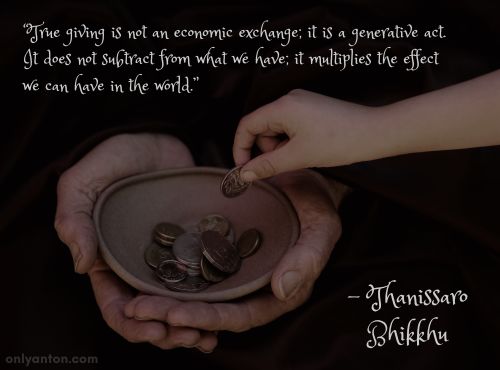
Presence Over Performance
What struck me afterward was not just the simplicity of the act, but the clarity of the moment. There was no calculation, no moral debate, just an intuitive response to a shared humanity. I had something to give, and this person had a need. That was enough.
From a Buddhist perspective, this moment was not about charity or self-sacrifice. It was an instance of karuṇā, compassion expressed through presence and action. Generosity isn’t always measured in coins or calories. It’s also measured in attention, openness, and the willingness to be touched by another’s condition. We sometimes think of generosity as transactional, but often it’s relational. To share food is to share space, dignity, and a fleeting but meaningful human connection.
Such encounters remind us that compassion doesn’t require elaborate planning. It arises in stillness, mindfulness, and a willingness to meet the world—and its people—as they are.
Conclusion: Carrying Compassion Forward
Travel has the power to broaden not only our horizons but also our hearts. Throughout this post, we’ve explored how generosity and compassion—dāna, karuṇā, and mettā—can shape our journeys in quiet, transformative ways. Whether it’s sharing food, supporting local communities, volunteering time, or simply listening with presence, these are not one-time actions, but ongoing practices that make travel more meaningful.
Key Takeaways
- Generosity and compassion are not burdens, but invitations to engage with the world more fully.
- Travel expands our ability to connect through small acts of kindness.
- Mindful, sustainable, and ethical choices put mettā and karuṇā into action.
- Not every good deed is required—some acts go above and beyond. These moments of supererogation are special because we choose them freely.
- Taking care of oneself is not selfish—it is part of sustaining the capacity to give to others.
- Intentional, context-sensitive giving (upāya) balances compassion with wisdom (prajñā).
Generosity doesn’t have to be grand. It lives in gestures—offering directions, listening with care, choosing the more ethical option even when it’s less convenient. These choices ripple outward, shaping the world and our place in it.
As we prepare to close this series, the final post, “Authenticity and Self-Awareness in Travel,” will explore how these values culminate in a deeper understanding of who we are and how we show up in the world.
What About You?
How have you experienced generosity while travelling—whether through a small act of kindness received, witnessed, or offered? What small gestures could you bring to your next journey to cultivate more compassion and connection?
I’d love to hear your stories and reflections. Feel free to share your thoughts in the comments below. Your insights might inspire someone else’s next generous and compassionate journey.
Glossary of Terms
These definitions provide a concise, accessible guide to the terms introduced throughout the series:
A
- Ahiṃsā: Non-harm, the ethical principle of avoiding injury to all beings through actions, words, and intentions.
- Ānāpānasati: Mindfulness of breathing, a meditative practice focusing on the breath to cultivate awareness and calm.
- Anattā: Non-self, the understanding that there is no fixed, permanent self.
- Anicca: Impermanence, the idea that all things are in constant change.
- Appamada: Diligence or heedfulness, maintaining mindfulness and ethical awareness in daily actions.
- Avidyā: Ignorance or misunderstanding, the lack of true knowledge obscuring reality.
C
- Cankama: Walking meditation, a mindful practice of slow, deliberate walking to develop focus and presence.
- Chanda: Wholesome desire, a positive motivation rooted in ethical intention.
D
- Dāna: Generosity, the practice of giving freely without expecting anything in return, one of the six paramitas.
- Dharma: Teachings or truth, often referring to the teachings of the Buddha.
- Dukkha: Suffering or dissatisfaction, central to the Buddhist worldview.
K
- Karma: The principle of cause and effect through intentional actions.
- Karuṇā: Compassion, the heartfelt wish to alleviate the suffering of others.
- Kataññutā: Gratitude, the recognition and appreciation of kindness received, cultivated as a virtue in Buddhist practice.
- Kaya Sati: Mindfulness of the body, awareness of bodily sensations, posture, and movement.
- Kintsugi: The Japanese art of repairing broken pottery with gold, symbolizing the beauty of imperfection and resilience.
- Kṣānti: Patience and forbearance, the ability to endure difficulties with calmness and understanding.
M
- Madhyama Pratipada: The Middle Way, avoiding extremes of indulgence and asceticism.
- Metta: Loving-kindness, a practice of cultivating goodwill toward all beings.
- Mudita: Sympathetic joy, taking happiness in the success and well-being of others.
N
- Nirvana: The cessation of suffering and the end of the cycle of rebirth.
P
- Paramita: Perfection or transcendental virtue, qualities such as generosity, patience, and wisdom that lead to enlightenment.
- Prajñā: Wisdom, the deep insight and understanding that guides ethical action and balanced compassion.
- Pratītyasamutpāda: Dependent origination, the Buddhist teaching that all phenomena arise in dependence on interconnected causes and conditions.
S
- Samatha: Calm, serenity, or tranquillity, a meditative state that quiets the mind and fosters inner peace.
- Sammā Kammanta: Right action, ethical conduct that avoids harm to others.
- Sammā Samādhi: Right concentration, the practice of focused, meditative absorption that fosters clarity and calmness.
- Sammā Sankappa: Right intention, the cultivation of thoughts guided by goodwill and wisdom.
- Sampajañña: Clear comprehension, mindful awareness of one’s actions, surroundings, and intentions.
- Sammā Sati: Right mindfulness, the cultivation of present-moment awareness with clarity and non-judgment.
- Sangha: The Buddhist community of monks, nuns, and lay practitioners who support one another in the path of practice.
- Santosh: Contentment, the practice of appreciating what is rather than longing for what could be.
- Satipatthana: The Four Foundations of Mindfulness—body, feelings, mind, and mental objects—forming the basis for insight and presence.
T
- Tanha: Craving or unwholesome desire driven by attachment and ego.
U
- Upadana: Clinging, attachment that leads to suffering.
- Upaya: Skillful means, using wisdom and compassion to adapt actions effectively.
- Upekkha: Equanimity, a state of balance and calmness amid life’s highs and lows.
V
- Vipassana: Discriminating insight, the practice of seeing things as they truly are through mindful observation.
- Viriya: Effort, the balanced energy and perseverance needed to cultivate positive qualities and sustain mindfulness.
- Vossagga: Letting go, releasing attachment to desires, outcomes, and fixed identities.
W
- Wu Wei: Effortless action, a Taoist concept of flowing naturally with life’s processes.
Y
- Yoniso Manasikāra: Wise attention, the skill of directing the mind toward wholesome thoughts and deeper understanding.
New terms will be introduced throughout the series as needed, offering deeper insights into the teachings relevant to travel.
Further Reading and Resources
Related Posts on Only Anton
- What Buddhism Taught Me About Travel: The introductory post in this series explores how Buddhist teachings can inspire mindful and transformative travel experiences.
- Managing Expectations in New Places: Part Two of the What Buddhism Taught Me About Travel series. Insights into adjusting expectations to cultivate openness and reduce disappointment while travelling.
- Seeing Reality Where You Are: Part Three of the series. Explore how Buddhist teachings can transform travel by helping you see reality as it is, embrace impermanence, and cultivate mindfulness on the journey.
- The Art of Letting Go While Travelling: Part Four of the series. Learn how letting go can transform your travel experiences through mindfulness, resilience, and meaningful personal connections.
- Understanding Suffering Along the Path: Part Five of the series. Transform travel challenges into growth with mindfulness, compassion, and reframing suffering as a path to resilience and wisdom.
- Mindfulness and Movement: Part Six of the series. Mindfulness and movement go together while travelling. Stay present, embrace the journey, and deepen your travels with mindful practices.
- Cultivating Gratitude Through Travel: Part Seven of the series. Gratitude can shift travel’s fleeting moments into meaningful experiences. Embrace travel challenges and journey with appreciation.
- Mindful Travel: Finding Meaning in Our Journeys: Explore mindful travel by aligning intentions with experiences, avoiding overplanning, and embracing spontaneity for a meaningful journey.
External Resources
Books
- The Heart of the Buddha’s Teaching by Thich Nhat Hanh (1999): A practical and compassionate guide to core Buddhist teachings, including sections on generosity, mindfulness, and compassionate action. Find it at your library, browse online, or grab your copy here.
- The Art of Happiness by the Dalai Lama and Howard Cutler (2020 edition): A thoughtful exploration of how compassion and kindness contribute to personal and global happiness. Check your local library, search online, or order a copy right here.
- The Sustainable Travel Handbook by Lonely Planet (2020): This practical guide offers actionable advice for eco-conscious travellers. It covers topics like reducing carbon emissions, responsible wildlife tourism, and supporting local communities. The book includes top destinations for sustainable travel, such as Costa Rica and Palau, and provides tips on ethical practices like minimizing plastic use and respecting indigenous cultures. See if your library has it, look online, or snag a copy here.
- The Ethical Traveler: 100 Ways to Roam the World (Without Ruining It) by Imogen Lepere (2022): This illustrated guide presents 100 tips aligned with the United Nations Sustainable Development Goals to help travellers make ethical choices. It offers practical suggestions for minimizing environmental impact, supporting local economies, and respecting cultural norms, making it a valuable resource for mindful travellers. Look it up at a local library, browse online, or buy your copy here.
Articles
- “The Gift of Generosity” by Phillip Moffitt (Dharma Wisdom): Phillip Moffitt explores the transformative power of dāna (generosity) in Buddhist practice. He discusses how acts of giving can liberate individuals from feelings of separateness and ego attachment, fostering a sense of connection and compassion towards others. Find the article here.
- “How to Practice Metta for a Troubled Time?” by Mushim Patricia Ikeda, Lion’s Roar: A practical and poetic introduction to loving-kindness meditation and its transformative power. Read the article here.
- “Metta Meditation: A Complete Guide to Loving-Kindness” (Lion’s Roar): This comprehensive guide delves into the practice of metta (loving-kindness) meditation, offering step-by-step instructions to cultivate compassion for oneself and others. It highlights the benefits of metta, including improved relationships and reduced stress, and provides practical advice for integrating this practice into daily life. Find the guide here.
Websites
- Responsible Travel: A travel platform and resource hub for ethical, sustainable, and community-based tourism.
- Buddhistdoor Global: A website offering in-depth features on Buddhist thought, lifestyle, and global compassion practices.
- GiveWell: Though not travel-specific, this site promotes transparency and wisdom in charitable giving, useful for travellers considering donations.
- Kiva: A nonprofit organization that facilitates crowdfunded microloans to entrepreneurs and small businesses around the world. Kiva empowers individuals—particularly in underserved communities—by providing access to capital with low or no interest. Supporters can choose specific borrowers to fund, helping to foster sustainable, locally driven economic development.
